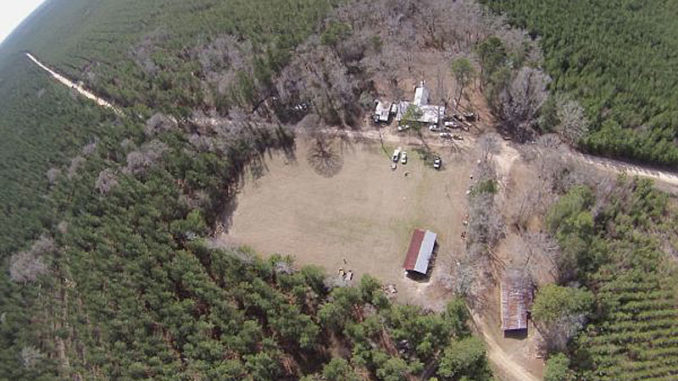
Make sure you have an emergency plan
Here we are in September once again. Summer heat and humidity are just beginning to give way to slightly cooler morning temperatures.
For the hunter, it is that exciting and busy time of the year when we get to do some shooting for doves and perhaps teal, and make all the preparations for the major hunting-season openings of October and November.
If you own or lease land for hunting, there are a hundred jobs that need doing. Camp cleaning, grass mowing, fertilizing and planting, blind and stand maintenance all need attention, and the list goes on.
Often overlooked among hunting season preparations and planning are a few things we need to have on hand in the hunting camp to address some areas of concern most people don’t think about.
This month let’s examine those concerns and do some advanced planning for better preparedness.
Hunting regs
First, let’s make sure we have all we need for compliance with the rules and regulations. Pick up extra copies of the hunting regulations and place them where they can easily be found in the camp.
Is the hunting property enrolled in the Deer Management Assistance Program? If so a copy of the DMAP rules should be with the general regulations booklets, and everyone — including guests — hunting on the property should be aware they are hunting on DMAP land.
If at all possible, determine before deer season begins the number of DMAP tags each member will be allotted and distribute them. The most-common DMAP violation is failure to tag a deer before moving it from the kill site. No excuse if the hunter received his tags in advance.
And make sure all the required information is recorded on the DMAP deer kill record sheet as soon as possible after a successful harvest. That’s another common violation.
Hunting camps offering freezer or cooler storage to the members should also see that everyone tags all game left in camp as required by law.
We are fortunate to have a walk-in cooler at our hunting camp. It is large enough to handle quite a few deer carcasses, along with hogs, squirrels, rabbits, ducks and whatever else the members place inside. I keep 3×6 card stock on hand with resident game-tagging requirements on one side and migratory bird on the other. The cards not only make it simple and easy to meet legal requirements, but they also make it easier to determine what carcass belongs to which member.
Safety
Camp burglaries, theft of hunting equipment and trespass are all too common in today’s world. I am not quite old enough to be eligible for a senior hunting and fishing license, but I can remember unlocked hunting camps and duck blinds that anyone was free to use so long as they didn’t take anything and cleaned up after themselves.
Those days are pretty much gone and certainly no longer advisable.
Camp and storage buildings should be kept locked. Consider a burglar and fire alarm system for the camp, if possible. The costs are pretty reasonable and you’ll get a discount on insurance if you have any on the camp.
Don’t forget fire extinguishers.
Remove keys from ATVs and other vehicles. Don’t leave guns or other valuables in camp. Some people leave guns in deer stands overnight, but I don’t recommend it.
Portable deer stands should be secured to trees with chains and locks if there is any possibility of theft. Position game cameras up high where they can’t be reached without a ladder.
Security
It is just about impossible to secure all the hunting gear we leave in the woods, so the next-best option is to restrict vehicle access. Where possible, prevent trespass by gating entrances to private roads and trails. Although not mandatory, posting “No Trespass” or “Posted Keep Out” signs on gates and entrances will remove all doubt that unauthorized guests are not welcomed.
Posted signs are also strong evidence that an offender knew he was trespassing in the event of an arrest and prosecution.
Contact wildlife enforcement agents and sheriff’s deputies who patrol the area and get acquainted. Ask them to keep an eye on the camp and property, and provide them with contact information so they can let you know about suspicious activity or burglaries in the area. Get contact numbers for them, as well, and keep the information on hand should you need law enforcement assistance. We never know when such a situation might arise.
I recall a story related to me by one camp owner. He and one of his young children arrived at the hunting camp one morning. Upon entering the camp they were confronted by a man the camp owner had never seen before.
The stranger had broken into the camp and had apparently been there a while. I don’t recall whether he found a gun in the camp or had one of his own, but either way he was now armed and held the camp owner and his child captive for a few hours.
Fortunately, the camp owner kept his head and calmly reasoned with the burglar. He was finally able to convince the burglar to leave without harming them.
He was then able to contact law enforcement for help, and the burglar was found and arrested.
Emergencies
Emergency situations arise when we least expect them. Smoke detectors are a must, and remember to install fresh batteries every fall.
Keep a first aid kit and plenty of antiseptic where they can be quickly located. We never make it through a season without someone accidentally getting a cut while skinning game or processing the meat at our camp.
No one is immune to serious injury or illness. We have all heard about heart attacks and strokes striking hunters every fall. Some are fatal, and in many of those cases death could have been avoided had the victim gotten medical attention sooner.
Many hunting camps are far from paved roads and highways. Some are only accessible by boat or four-wheel drive, so getting an ambulance to a critically ill or injured victim is not going to happen. And transporting a victim out to a paved road might take hours.
Remember, too, that few if any camps have street addresses listed with the 911 emergency services for the area. Even if the camp is accessible, could you give clear, accurate directions to first responders trying to find it?
I encourage every camp to have an emergency response plan in place. Make a list of emergency phone numbers including fire, police and ambulance. Post the list in camp where it can be found at a glance.
Consider a medical flight plan. In my opinion, this is the best option and takes little time to arrange.
Locate an open area near camp where a helicopter can safely land. Using a GPS, get the longitude and latitude coordinates for your landing zone, and post those in camp with the emergency phone numbers.
We are now well prepared for good times at the camp and a safe, enjoyable hunting season.


